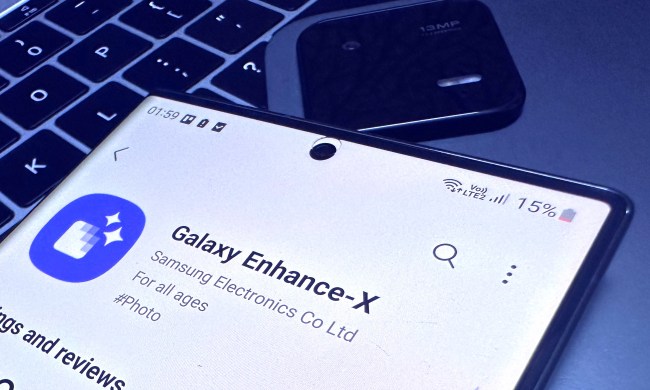
In a crowded field of voice assistants dominated by Amazon’s Alexa, Apple’s Siri, and Google Assistant, it’s easy to forget about Samsung’s Bixby. The South Korean manufacturer is ready to start playing catch-up, and its first step toward making up for the lost ground is to open Bixby up to third-party developers. Starting later this year, it will be possible for developers to integrate Bixby into other apps and services, according to CNBC.
Bixby, which is embedded in the latest line of Samsung smartphones and the upcoming Samsung Galaxy Home smart speaker announced earlier this year, will get the ability to work with third-party programs before the end of the year. The update is expected at the Samsung Developer Conference, set to kick off in San Francisco on November 7. That release will include a software developer kit (SDK), as well as an application programming interface (API) for developers to make use of.
The move marks Samsung’s latest attempt to differentiate itself from its competition, which has left the company in the dust thus far. Bixby holds just 6.2 percent of the market when it comes to smart assistants, according to a report earlier this year from Business Insider. The same report shows Apple dominating with nearly 46 percent of the market, and Google Assistant and Amazon Alexa making up the majority of the remaining share.
By opening up Bixby to third-party developers, Samsung is borrowing a page from Amazon’s playbook. The company has allowed developers to create apps—called “skills“—for Alexa. The popular voice assistant now has more than 30,000 skills available — though the majority of them, 62 percent, have few installs and no reviews according to research conducted by voicebot.ai. There is limited third-party support for Apple’s Siri.
Samsung certainly has the install base to make up for lost ground if it can make Bixby a legitimate force in the voice assistant game. The company accounts for 20 percent of all smartphones sold worldwide, the largest share held by an individual vendor, according to Statista.com. However, the company has been losing ground as it falls behind in features and has an increasing number of competitors offering similar products at comparable prices. Boosting


